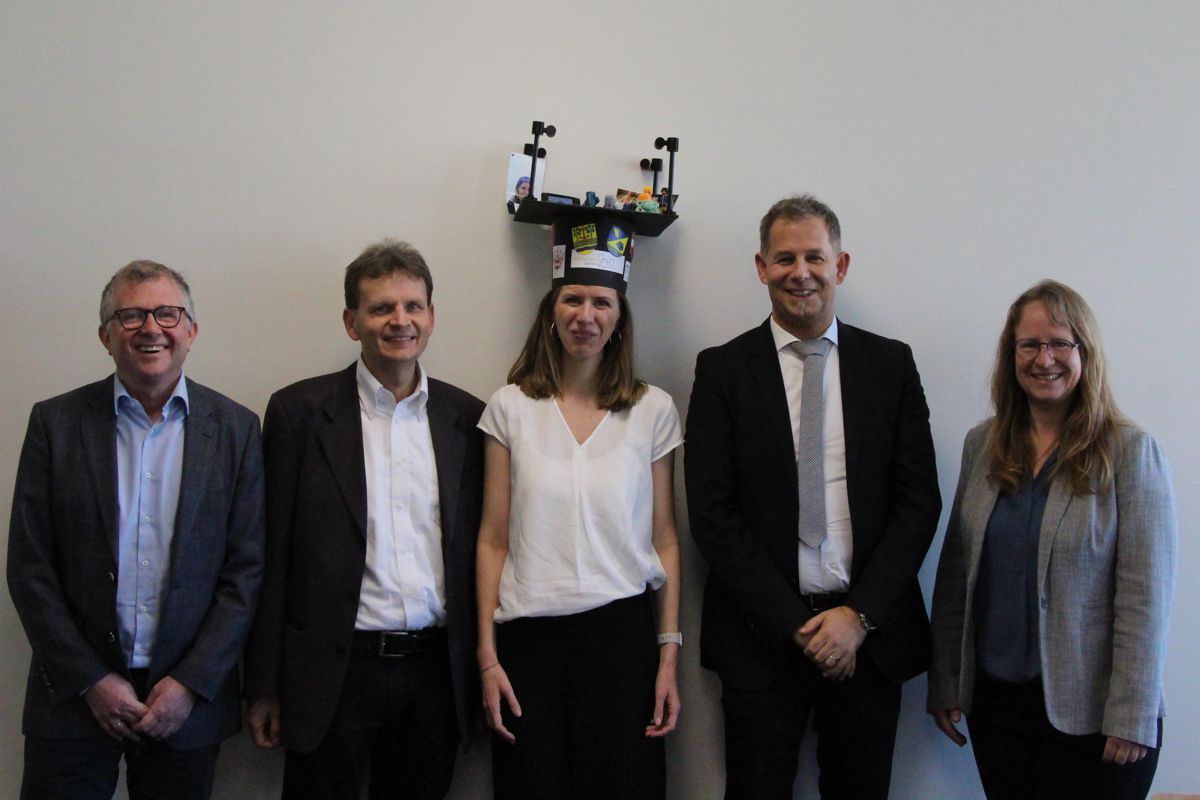No. 18 - Christin Bald
Christin Bald: Echtzeitlokalisierung magnetoelektrischer Sensoren
Pdf-based submission (available freely via the MACAU system), 2024
Commission
- Prof. Dr.-Ing. Gerhard Schmidt
(first reviewer) - Prof. Dr.-Ing. Michael Höft
(second reviewer) - Prof. Dr. Martina Gerken
(examiner) - Prof. Dr.-Ing. Jeffrey McCord
(head of the examination board)
Abstract
The measurement of magnetic fields is becoming increasingly important in medicine. The signals measured by magnetic field sensors outside the body can be used to infer the processes inside the body. This is done by solving a so-called inverse problem, which needs the positions and orientations of the measuring sensors besides the signals. The positions and orientations should be determined continiously during measurement, since they are not necessarily fixed during a magnetic measurement. This is done by a magnetic localization. This work presents a signal processing chain for magnetic localization in real time. This includes preprocessing steps for extraction of important information from the sensor data, the estimation of the position and orientation of the sensor(array)s and postprocessing of the estimated data. The proposed signal processing chain will be first described theoretically and afterwards evaluated by means of simulations and measurements. The signal processing chain is suitable for all kinds of magnetic sensors in principle. This work focusses on magnetoelectric sensors. Commercially available fluxgate magnetometers have been used for comparison purposes. Different parameters and distortions are investigated, that could have an influence on the localization accuracy. For example, the accuracy at different signal-to-noise ratios will be examined as well as the robustness in the presence of different errors in the forward model, like deviations from the sensor modell or the coil positions and orientations. The measurements are executed with a single sensor in 2D as well as a single sensor and a 3D sensor in 3D. In total, a higher localization accuracy can be achieved with the fluxgate magnetometers in comparison to the magnetoelectric sensors. Nevertheless it can be shown, that the magnetoelectric sensors are suitable for magnetic localization. Besides handing over the position and orientation information for the solution of different kinds of inverse problems, the localization can be used as a stand-alone application. This will be investigated in this work by localizing an ultrasound head. The localization accuracy is not impaired by the ultrasonic device and thus by the potential source of interference.

 Visit of the Hans Böckler Foundation
Visit of the Hans Böckler Foundation